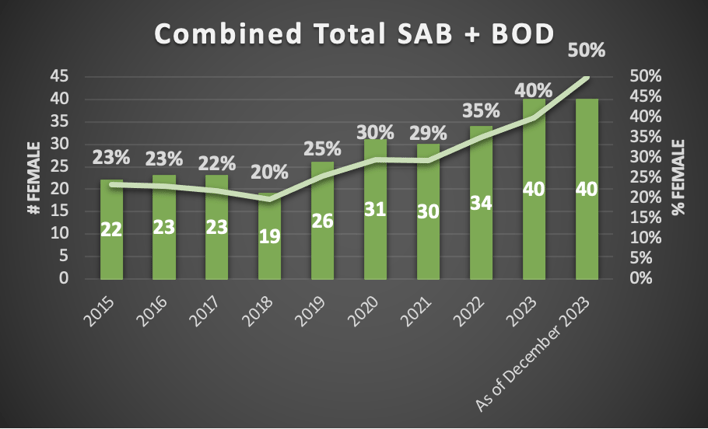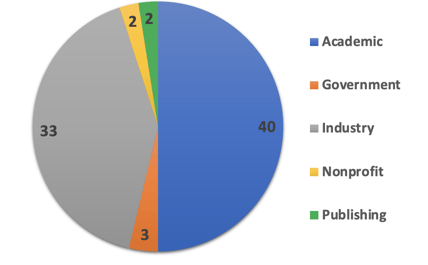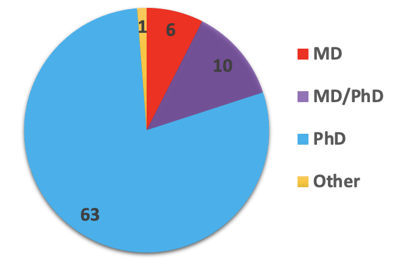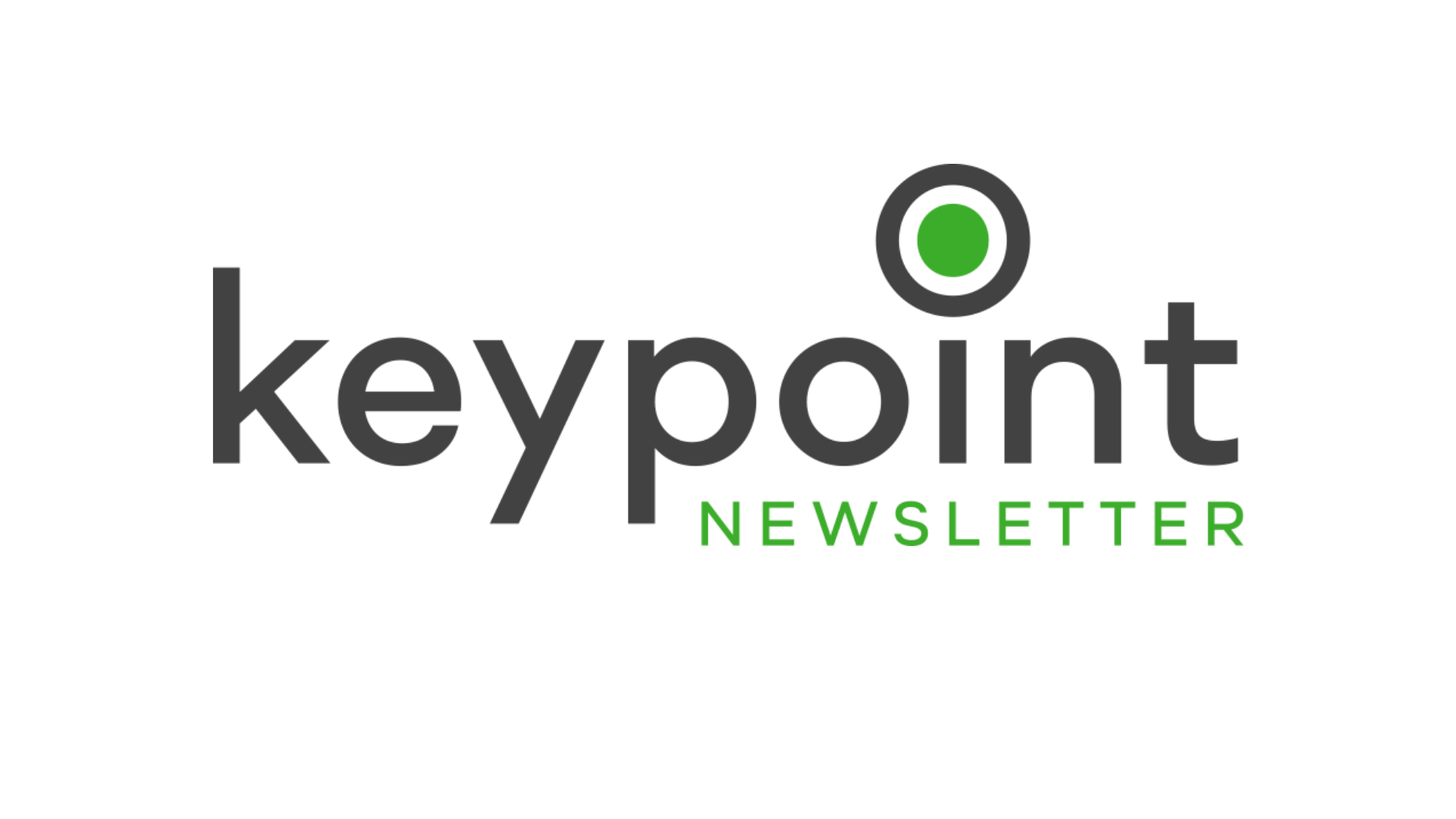Keypoint Newsletter: SAB Highlights on Gender Parity, Diversity and New Members
Our Scientific Advisory Board (SAB) is our guiding compass when it comes to conference programming, and this esteemed group of thought-leaders is critical to ensure our conference portfolio continues to explore new frontiers and catalyze cross-disciplinary advances. (See Newsletter piece "Birth of a Conference") The SAB is comprised of ~80 prominent scientists across academic, industry, government, non-profit, venture capital and publishing sectors, providing diverse perspectives and expertise. To provide this diversity in voices and viewpoints, we work to include broad representation in our SAB appointments, across gender, race/ethnicity, scientific expertise and sectors. By embedding this diversity in our culture from the top down, we ensure that diversity is incorporated within all aspects of our conference programs, from organizing teams, to speaker rosters, to the scientific perspectives and approaches represented. Below we highlight recent progress towards equity and inclusion in our SAB.
Gender Parity
While female representation in the life sciences has grown in recent decades, representation of females in leadership and advising roles still lags in many cases. We have made a concerted effort to rectify this issue and have made swift progress in recent years to now reach gender parity on our SAB (see graph below). This ensures that our programming integrates gender perspectives, and has resulted in new conference topics such as Maternal-Fetal Crosstalk and Female Reproductive Biology, as well as content within existing conferences that address gender differences across biology and medicine. In addition, it provides women with equal opportunity to drive conversations at the forefront of science and medicine and contribute their ideas to shape the future of biomedicine as part of our SAB.

Race & Ethnicity
Progress on representation of diverse races and ethnicities in biological and medical research has lagged behind gender balance. We strive to include broad representation on our SAB to ensure that our programming addresses the needs of diverse communities, which have historically been left out of the scientific conversation.
Our SAB boasts many prominent scientists from under-represented backgrounds, as well as those from low-and-middle-income countries. The inclusion of these diverse perspectives and backgrounds is essential to guide our overall programming, as well as to bolster our health equity programming as these members often provide unique insights into disparities and relevant priorities for particular populations. In addition, these members provide critical viewpoints into how we can design and improve our Diversity in Life Sciences Programs to best support under-represented scientists and trainees, while also serving as essential role models to inspire those striving to follow in their footsteps.
SAB Diversity Demographics:
- 12 Under-Represented Minorities
- 7 African American/Black
- 5 Hispanic American/Latin American
- 12 Low-or-Middle-Income Country (LMIC) Representatives
Balance Between Academic, Industry & Clinical Expertise
Keystone Symposia was founded on the philosophy that partnerships between academia and industry sectors spurs scientific, technological and translational advances and innovations, which in turn achieve greater impacts on research, patients, and society. At the time, back in the 1970s, the siloes between academia and industry were iron-clad, and we were on the vanguard of recognizing the synergistic potential of academic-industry collaboration, which has now caught on across the scientific endeavor.
Thus, life science industry participation on our Scientific Advisory Board has always been invaluable to Keystone Symposia’s mission. A balance between academic, industry and clinical voices on our SAB is essential to generate innovative programming designed to catalyze cross-talk, collaboration and synergy between these sectors. By breaking down these siloes we open the door to transformative new treatments, vaccines and diagnostics, and accelerate the path from bench to bedside.
SAB Composition by Sector

Clinical Representation on the SAB

Welcoming New SAB Members
We extend a warm welcome to new SAB members who joined the team in 2023. New members are brought on annually to provide scientific expertise in emerging fields, or to bolster areas where representation is thin. Thus, each year brings new voices, fresh ideas and novel perspectives to guide our conference programming. These include new members of our Board of Directors, who also contribute as part of the SAB. We look forward to working with these new members across academia and industry!
Elected Members
- Morrie Birnbaum - Pfizer Inc.(Board of Directors)
- Chi Dang - Ludwig Institute for Cancer Research & Johns Hopkins University (Board of Directors)
- Stacey Finley – University of Southern California
- Jason Gestwicki - University of California, San Francisco
Sponsor Nominated Members
- Esther Breij – Genmab
- Thomas Conlon - Michelson Philanthropies & Michelson Found Animals Foundation
- Jon Chesnut – Thermo Fisher Scientific
- Weiwen Deng – Amgen Inc.
- Anne Murphy - Cytokinetics, Inc.
- Anne-Marie La Ronde-Richard - Pfizer
Farewell to Departing SAB Members
All good things must come to an end, and this includes the terms of some stellar SAB members. SAB members serve 3-year terms, which can be renewed up to two times (3 terms total), to ensure a healthy turnover of ideas and perspectives within the group. We thank you for your service and hope to see you at upcoming conferences that you helped to shape!
Elected Members
- Sean Hill, Centre for Addiction and Mental Health
- Tony Lam, Toronto General Research Institute
- Juan Carlos Lopez, Haystack Science* (Board of Directors)
- Julie McElrath, Fred Hutchinson Cancer Research Center
- Leon Murphy, Casma Therapeutics
- Paul Parren, Leiden University Medical Center
- Bali Pulendran, Stanford University School of Medicine
- Ali Shilatifard, Northwestern University
- Barry Sleckman, University of Alabama Birmingham School of Medicine
- Lynda Stuart, BioNTech
- Yibin Wang, Duke – NUS, Singapore
- Xuebiao Yao, University of Science and Technology of China
Sponsor Nominated Members
- Luciano Adorini, Intercept Pharmaceuticals, Inc
- Feng Cong, Novartis
- David D’Argenio, Bill & Melinda Gates Foundation
- Udayan Guha, TCR2
- Jonathan Hill, Surface Oncology
- Dangsheng Li, Shanghai Institutes for Biological Sciences, Chinese Academy of Sciences
- Kang Liu, Boehringer Ingelheim
- Travis Maures, Synthego
- Craig Monell, BioLegend, Inc.
- Rick Morgan, BeBiopharma
- Stéphane Peluso, Infinity Pharmaceuticals
- Sue Sohn, Amgen
- Uli Stilz, Novo Nordisk A/S
- Daniel Tumas, Gilead
- Chandra Vargeese, Wave Life Sciences
- Jonathan Zalevsky, Nektar Therapeutics
Return to the December 2023 Keypoint Newsletter

Related news
Keypoint Newsletter: Health Equity Programming
New this year we added new Health Equity Programming to select meetings, to raise awareness for...
.png?width=4688&height=1563&name=donate%20banner%20(1).png)



